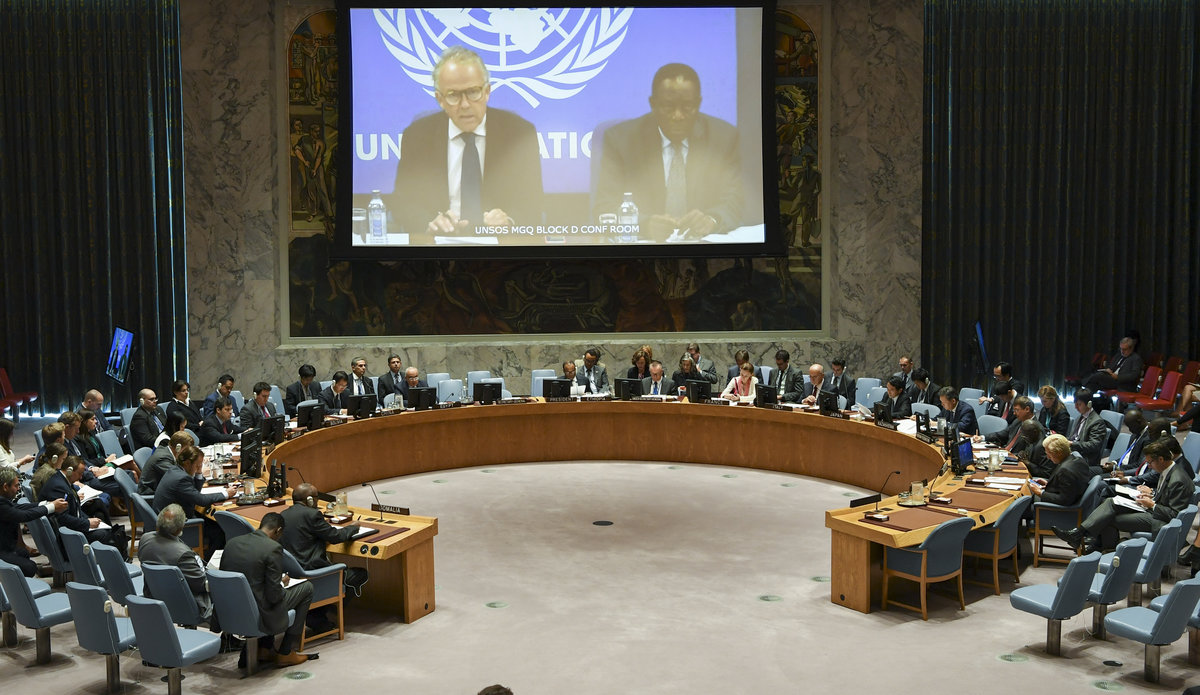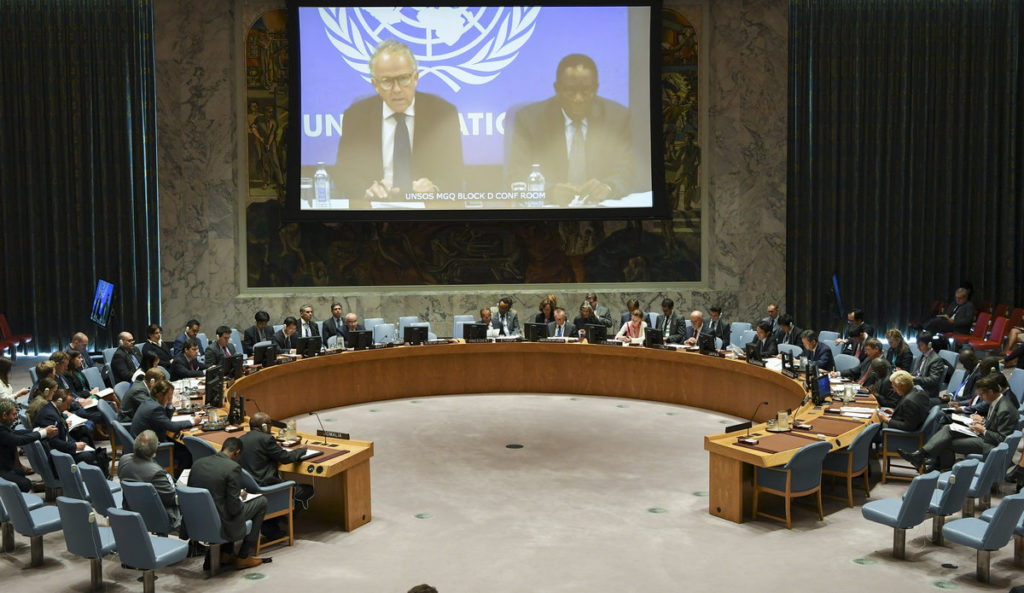Gulf Crisis costing Somalia revenue and investment-UN


The ongoing Gulf Crisis has adversely affected Somalia’s prospects of investment and revenue from Gulf countries, the UN has warned calling on the international community to shore up support to the Horn of Africa country to stem further effects.
Addressing the UN Security Council Wednesday, Special Representative of the Secretary General Michael Keating said Crisis now in its third month was having a heavy toll on Somalia which sought to maintain a neutral stand.
“The crisis in relations between Gulf countries has had an impact on Somalia. Anticipated investments and revenue streams have not been forthcoming, and the Federal Government’s declaration of neutrality, while receiving widespread support, has not gone down well with certain constituencies,” said Keating.
Keating called on the international community increase its support ‘to protect Somalia from the potentially destabilising effects of geopolitical rivalries.’
Somalia announced its neutral stand in June even as most Muslim African countries declared allegiance to Saudi Arabia. In its 2017 national budget, the government excluded an expected $5 million budget support entry from Saudi Arabia, an indicator the country was readying itself for the price of neutrality.
Livestock farmers export up to 5 million lives animals to the Gulf region which saw them pocket $384 million in 2015. However a ban on livestock exports to the Gulf came before the current Gulf crisis.
The UN chief in Somalia added the government’s neutral stand on the Gulf Crisis had also led to a strain in relations between state institutions.
Debate has been raging in the country with calls on the Federal Government to reconsider its neutral stand and lend support to Saudi Arabia. The semi-autonomous region of Puntland announced last month it was breaking ranks with the Federal Government and aligning itself with Saudi Arabia over what it termed as security and economic effects.
Keating also impressed upon the Security Council to bolster Somalia’s debt relief process noting the country’s access to revenues was crucial to finance the national development agenda.
“A critical requirement will be raising revenues, whether from domestic sources or by accessing concessional finance. Advancing arrears clearance and reaching Heavily Indebted Poor Countries (HIPC) decision point are essential and will require both the strengthening of public financial management and international action. The support of the Council could make a decisive difference.”
Under the HIPC initiative, the decision point is the level at which the World Bank and the IMF formally determine whether a country is eligible for debt relief. Countries at this point have met stringent qualifications, including income thresholds. The international community commits to a level of debt relief, and the country may begin receiving debt relief at this point.